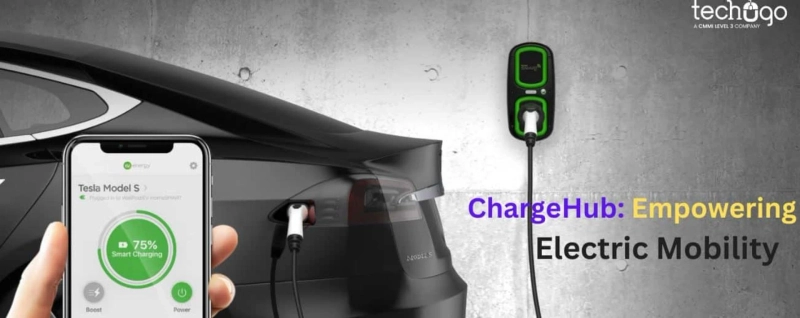The EV charging stations app market has been rising steadily and will persist in doing so in the future. As the popularity of electric vehicle station applications continues to increase, there is a growing need for charging stations across numerous locations. Most of these stations are connected to charging networks that allow users access through an application on their mobile device.
Before beginning the development of an app, an enterprise should determine which features it requires. One option is to consult with an EV Charging Station app development company and research the cost of building the app on different platforms.
Are you excited to know more about it?
If yes, then let\'s dive right in!
Technologies Used in EV charging station App Development
The technology used in EV charging station app development can differ depending on the conditions and platform chosen by the enterprise. Yet, here are some standard technologies and components that may be applied:
- Mobile App Development: The app can be developed for both iOS and Android using different programming languages. Cross-platform frameworks like React Native or Flutter can be utilized for creating a single codebase that works on many platforms.
- User Interface Design: Tools like Adobe XD or Figma can be used for creating the user interface and interactive prototypes for the application.
- Geolocation Services: Incorporating geolocation services like GPS can help users to locate nearby charging stations, get directions, and estimate distances in significantly less time.
- Backend Development: Building a solid backend infrastructure using different technologies such as Node.js, Python, or Ruby on apps can handle user authentication, data storage, and communication with charging stations.
- APIs: Using APIs such as Google Maps API for location services, payment options like PayPal for transactions, and charging network APIs to access real-time data from charging stations.
- Real-time Data Sync: Executing technologies like WebSockets or Message Queuing Telemetry Transport can enable real-time communication between the app and charging stations, delivering live status updates and availability information of the station.
- Payment Integration: Integrating secure payment gateways to allow users to pay for charging sessions seamlessly with just one click. This may involve using APIs provided by payment service providers or designing custom payment methods.
- Push Notifications: By using push notification services like Firebase Cloud Messaging or Apple Push Notification Service to send signals and reminders to app users regarding charging status updates, promotions, or other required information.
- Data Analytics: Gathering and analyzing data from charging sessions, user preferences, and app usage to improve user experience, optimize charging station operations, and offer recommendations.
- Security: Incorporating security measures like encryption, secure data storage, and user authentication is essential to protect users\' personal information and ensure safe transactions.
Remember that specific technology choices can vary depending on the developer team\'s expertise and requirements. If you want to know more about it, book a session with a top mobile app development company in India.
Advantages of EV Charging station app
There are many advantages of EV charging station app development. Here are some key benefits:
- Enhanced User Experience: An EV charging station app provides a comfortable and user-friendly interface for EV owners to see, access, and pay for charging services. It facilitates finding nearby charging stations, checking availability, and starting charging sessions, resulting in a more convenient and enhanced user experience.
- Real-time Details: The app can provide real-time information about charging station availability, charging rates, and charging times. Users can decide where and when to charge their vehicles, optimizing their charging experience and lowering wait times.
- Efficient Charging Management: EV charging station apps allow users to watch and manage their charging sessions remotely. They can begin or stop charging, set assessing limitations, and receive information when charging is complete. This level of control enables users to optimize their charging patterns, maximize efficiency, and avoid excessive charging costs.
- Integration with Navigation Systems: EV charging station apps can combine with navigation systems, providing turn-by-turn directions to the nearest charging stations. This feature is convenient for EV owners planning longer trips, as it enables them to identify charging stops along their routes and ensures they can reach their destinations without range anxiety.
- Payment Convenience: EV charging station apps help in the payment process by enabling users to make secure and hassle-free transactions straight from their mobile phones. They can store payment details, view charging costs, and obtain digital receipts, stopping the need for physical payment methods and simplifying the overall payment experience.
- Environmental Impact Awareness: Many EV charging station apps provide customers with data on the environmental effect of their charging sessions, such as carbon emissions saved and equivalent trees planted. This helps increase awareness about the positive ecological influence of driving electric vehicles and motivates users to make sustainable options.
Conclusion
In conclusion, an EV charging station app development company plays a crucial role in revolutionizing the charging experience for electric vehicle companies. By using different technologies and innovative features, these companies create user-friendly apps that improve convenience, provide real-time details, and promote sustainability. Their solutions facilitate payments, optimize charging infrastructure planning, and drive the adoption of electric vehicles. It contributes significantly to creating a cleaner and greener future of transportation.



